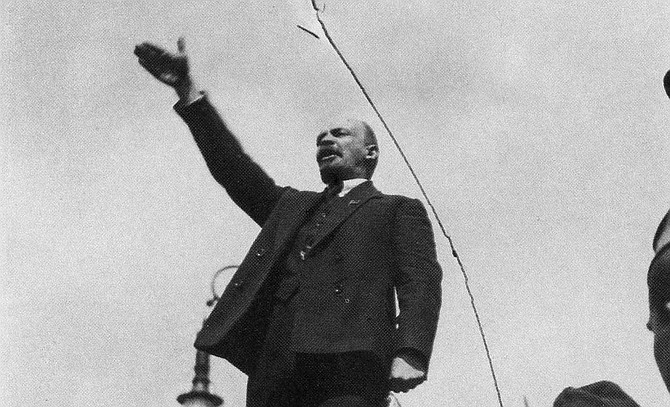One hundred years ago, the Bolshevik Revolution, which began in February 1917, reached its apex in October 1917 when the party met and voted to overthrow the inept and floundering provisional government. For the first time, a self-proclaimed socialist government was formed. From the new government's founding, it was assailed from within and without. Against all odds, it began carrying out the work it had started with the support from the workers.
However, times were not well. A new civil war began. Great Britain, the U.S., France and Japan openly backed the anti-soviets, who engaged in tactics of mass brutality, racist killings and torture. Sadly, the soviets begrudgingly began to fight just as dirty against their opponents.
Although the civil war was won, the troubles were not over. Joseph Stalin, originally a minor clerk in the Bolshevik party, moved through brutal machinations and Machiavellian double dealing to take leadership of the party. The other members of the party ignored the stroke-weakened Vladimir Lenin, who begged the party to remove Stalin. Lenin had given so much of his health and intellectual power to building a new world only to see it slipping away. Once Lenin died, Stalin moved to consolidate all power under him. Leon Trotsky, who led the leftists in fighting back against Stalin's authoritarian and dictatorial plans, was chased from the country and eventually assassinated. Stalin began purging those who disagreed, becoming tsar in all but name. He brought authoritarian brutality back to Russian politics.
Many look at the October revolution and see an inevitable progression to Stalin, genocide, then failure. Surely the fault must lie with Lenin, Trotsky and the original Bolsheviks. The capitalists argue that the eventual failure of October proves once and for all the superiority of capitalism. Sadly, many on the left defend the entire history of the Soviet Union, including Stalin. They seek a way to defend it all, because they believe to admit any failure is to admit it all failed. This stance is as flawed as the capitalist stance, and does not do justice to the revolutionaries and what they fought for. The revolution did not have to end in Stalin. If not for poor decisions and bad luck, it could have continued on the trajectory for freedom.
Lenin was a brilliant thinker and cunning diplomat who made many poor strategic decisions. Trotsky had a brilliant speech for every occasion, yet he was powerless against Stalin. The Bolsheviks defended their new government bravely, yet too often with brutality. It does not do to deify imperfect people.
So why should we remember the October revolution? Why should we honor the revolutionaries at all? Because for a brief shining moment, we saw that a new world was possible. The Soviets brought a strong move to the left, arguing for the ownership of production by the workers themselves. They gave the workers the power to determine their own fate, rather than a factory owner deciding it. There was no tsar tossing them scraps: Here, the people were the power. The peasants who worked the land owned the land. Homosexuality was decriminalized. Education was universalized, free for all. In work and marriage, rights were equal between men and women. The law did not differentiate based on gender. People were free to practice or not practice religion; the church no longer ruled the people as the left hand of the tsar. The rights of religious minorities, chiefly Muslims, were explicitly protected. The revolutionaries punished and opposed anti-Semitism along with its accompanying violence and murder.
In our current age of continued systemic racism, inconceivably high economic and income inequality, and sexism, bigotry and intolerance in all forms, October 1917 shows us there is another path. In the unlikeliest of countries where the most brutal of dictatorships ruled, the people rose up and fought back. The revolution failed, falling to the machinations of dictators, the interference of the West and the mistakes of its founders, but for a brief moment, the people shook the world. October 1917 teaches us that it is not a wasted effort to fight. It is not a hopeless struggle. The people fought to build a better world before; we the people can do it again.
Criminal defense attorney Andrew J. Williams, Esq., lives and practices in his adopted home of Mississippi. This column does not necessarily reflect the views of the JFP.




Comments
Use the comment form below to begin a discussion about this content.
comments powered by Disqus